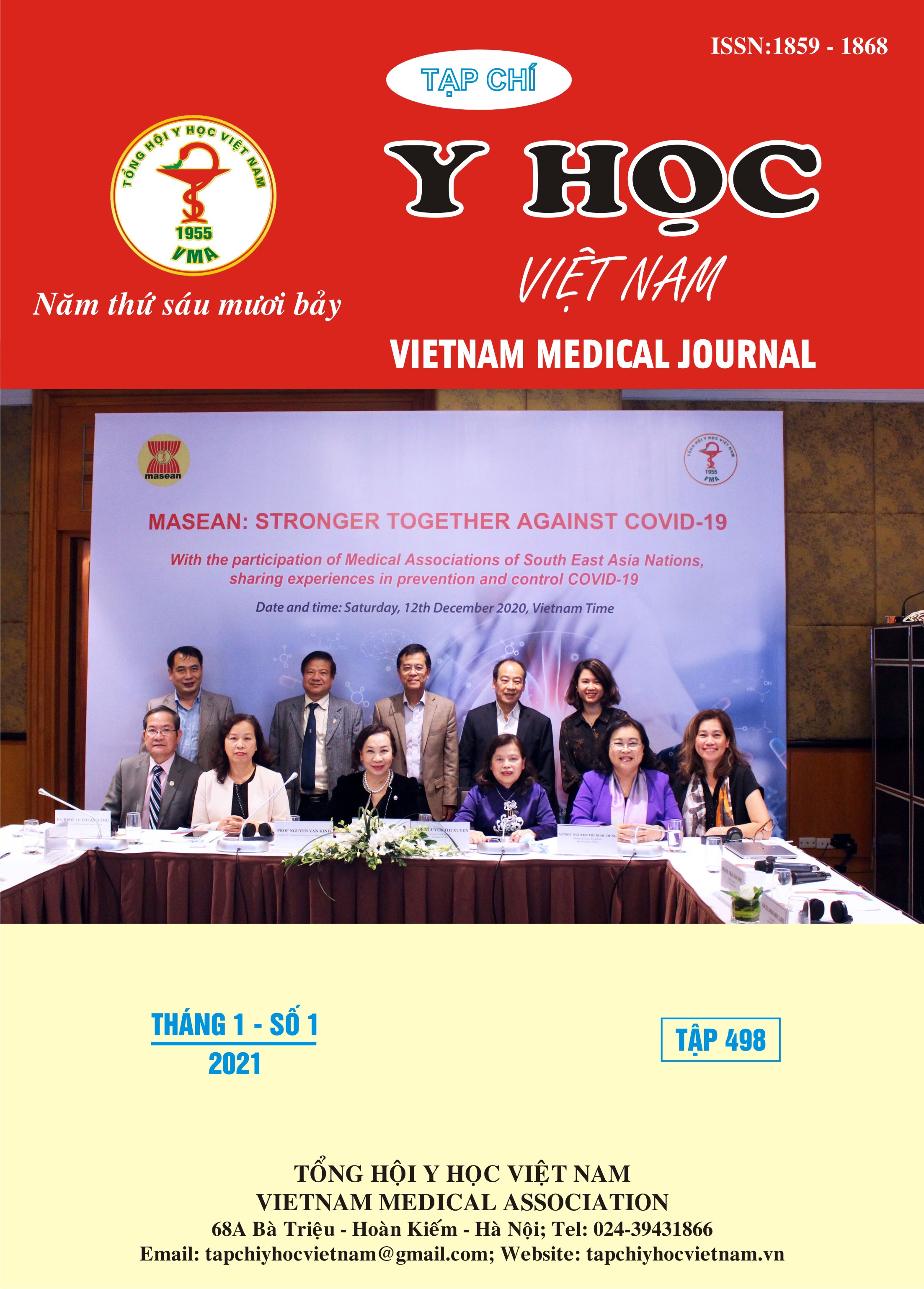OVEREXPRESSION AND PURIFICATION OF HUMAN NF-κB P65 TRANSCRIPTION FACTOR USING E. coli HOST CELL FOR CANCER INHIBITOR SCREENING PURPOSES
Main Article Content
Abstract
Background: NF-κB p65 transcription factor is present in almost all human cell types and plays important role in regulating human immune system. Up-regulation of NF-κB p65 is associated with a number of human cancer types. In order to screen inhibitors of NF- κB p65 using in vitro approach, it is required to produce large amount of recombinant NF- κB p65 with high purity. Objectives: 1. To design expression construct that can express human NF- κB p65 in E.coli host cells, 2. To purify recombinant NF- κB p65 with high purity. Materials and methods: Codon optimization and DNA cloning methods were used to design expression vector containing gene encoding NF-κB p65 transcription factor. The recombinant protein was expressed in E. coli BL21(DE3) and then purified using nickel affinity chromatography. Results: The DNA fragment encoding human DNA binding domain (Rel homology domain) of NF-κB p65 transcription factor was successfully codon-optimized and inserted in to pET-28a expression vector to generate pET-28a/ NF-kB p65 construct. The pET-28a/ NF-κB p65 was then transformed in to BL21(DE3) E. coli competent cells using heat-shock method. The expression of recombinant NF-κB p65 protein in E. coli BL21(DE3) strain was successfully induced at both 20oC and 37oC with 100 µM IPTG. The expression level of recombinant NF-κB p65 was very high as 50 mg the recombinant protein was obtained per liter of LB culture. Recombinant NF-κB p65 was purified using nickel bead column with high purity. Conclusion: We have successfully expressed and purified recombinant NF-κB p65 with high yield of 50 mg/L. The obtained NF-κB p65 with high purity can be used for screening of potential drug for NF-κB p65-related cancer diseases.
Article Details
Keywords
transcription factor, NF-κB, p65, gene expression, recombinant protein, NF-κB, affinity chromatography
References
2. Hayden, M.S., A.P. West, and S. Ghosh, NF-kappaB and the immune response. Oncogene, 2006. 25(51): p. 6758-80.
3. Sovak, M.A., et al., Aberrant nuclear factor-kappaB/Rel expression and the pathogenesis of breast cancer. J Clin Invest, 1997. 100(12): p. 2952-60.
4. Hagemann, T., et al., Macrophages induce invasiveness of epithelial cancer cells via NF-kappa B and JNK. J Immunol, 2005. 175(2): p. 1197-205.
5. Wang, W., et al., Overexpression of urokinase-type plasminogen activator in pancreatic adenocarcinoma is regulated by constitutively activated RelA. Oncogene, 1999. 18(32): p. 4554-63.
6. Shukla, S., et al., Nuclear factor-kappaB/p65 (Rel A) is constitutively activated in human prostate adenocarcinoma and correlates with disease progression. Neoplasia, 2004. 6(4): p. 390-400.
7. Xia, Y., S. Shen, and I.M. Verma, NF-kappaB, an active player in human cancers. Cancer Immunol Res, 2014. 2(9): p. 823-30.
8. Thompson, J.D., D.G. Higgins, and T.J. Gibson, CLUSTAL W: improving the sensitivity of progressive multiple sequence alignment through sequence weighting, position-specific gap penalties and weight matrix choice. Nucleic Acids Res, 1994. 22(22): p. 4673-80.


